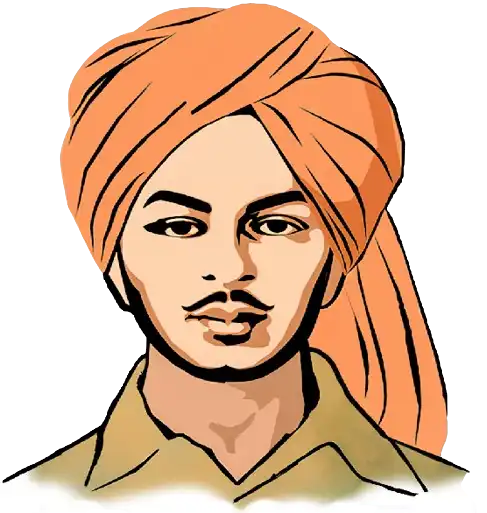1. Early Life and Awakening
From a young age, Bhagat Singh was deeply affected by the political turmoil surrounding him. Growing up in a family with a strong history of political activism, he was exposed to the ideals of freedom and independence early on. His education further fueled his desire for justice, leading him to join the National College in Lahore, a hotbed for revolutionary activities.
The 1919 Jallianwala Bagh Massacre was a turning point for the young Bhagat Singh. The brutal killing of hundreds of unarmed civilians by British troops in Amritsar profoundly impacted him, steering him towards a path of revolutionary activism.
2. Revolutionary Activities
Dissatisfied with the non-violent approach of the Indian National Congress, Bhagat Singh sought a more aggressive stance against British rule. He joined the HSRA, advocating for the overthrow of colonial power through armed rebellion.
One of Singh's most notable actions was the bombing of the Central Legislative Assembly in Delhi in 1929. The attack, carried out with Batukeshwar Dutt, was intended to be a loud protest against the implementation of the Defence of India Act, which imposed stricter control of press and political activities. Singh and Dutt surrendered after the bombing, using their arrest as an opportunity to publicize their cause.
Singh's involvement in the killing of British police officer John Saunders, mistaken for James Scott, who had ordered the lathi charge leading to Lala Lajpat Rai's death, led to his arrest. The subsequent trial, known as the Lahore Conspiracy Case, resulted in Singh, along with Rajguru and Sukhdev, being sentenced to death. On March 23, 1931, Bhagat Singh was executed, becoming a martyr at the age of 23.
3. Ideology and Influence
Bhagat Singh's ideology was complex and evolved over time. Initially influenced by anarchism and Marxism, he envisioned an independent India free from not only British rule but also social injustices and economic inequality. His writings, including essays and letters from jail, articulate his vision for a secular and socialist India.
4. Legacy and Impact
Bhagat Singh's legacy extends far beyond his martyrdom. He remains a symbol of youth, bravery, and the fight against injustice. His life and sacrifice continue to inspire movements for freedom, equality, and justice across the world.
5. FAQs
Bhagat Singh is considered a martyr because he sacrificed his life for the independence of India from British colonial rule. His execution at a young age for the cause of freedom left a lasting impact on the Indian independence movement.
It is widely believed that Bhagat Singh's last words were "Inquilab Zindabad" (Long Live the Revolution), symbolizing his unyielding spirit and belief in the cause of freedom.
Bhagat Singh became a national hero due to his bold actions against the British government, his revolutionary ideas, and his willingness to sacrifice his life for the country's independence. His youth, ideology, and martyrdom made him an icon of the Indian freedom struggle.
6. Online Resources
- Shaheed Bhagat Singh Research Committee: Offers extensive research, articles, and resources on Bhagat Singh's life and work.
- National Archives of India: Provides access to historical documents, letters, and writings related to Bhagat Singh and the freedom movement.
- Academic Journals and Publications: For in-depth analyses of Bhagat Singh's ideology and impact on India's struggle for independence, platforms like JSTOR and Project MUSE offer access to scholarly articles and papers.
7. Conclusion
Bhagat Singh's life was a beacon of courage, selflessness, and unwavering dedication to the cause of freedom. Through his revolutionary activities, writings, and ultimate sacrifice, he left an indelible mark on India's struggle against British colonialism. Bhagat Singh's legacy continues to inspire not only Indians but people around the world fighting against oppression and injustice. As we reflect on his contributions, we are reminded of the price of freedom and the enduring power of an idea whose time has come.

